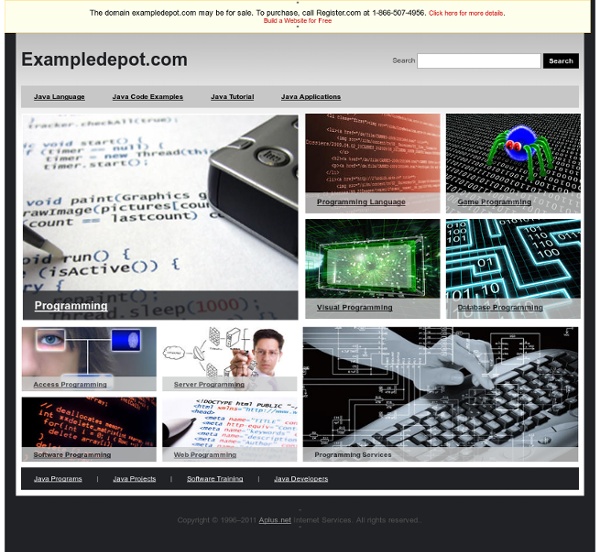



Comment innover sur le web Dans cette page : Quelques pistes pour secouer la toile. En bref ... Condamné à innover Bien que Google ait un (petit) faible pour les nouveautés, le combat que vous allez mener pour imposer votre site comme une référence est perdu d'avance... si vous n'apportez pas quelque chose de nouveau - d'une façon ou d'une autre - à ce qui existe déjà sur le web. L'ancienneté est en effet un avantage redoutable sur la toile Internet : Les sites existants connaissent le marché, ils savent ce qui plait et ce qui ne plait pas. Les sites existants sont référencés dans une multitude d'autres sites. En clair, sur le web comme ailleurs, le succès appelle le succès et les nouveaux venus ne sont pas forcément bienvenus. La concurrence est extrême et votre site ne pourra percer que si vous parvenez à "créer l'évènement", d'une façon ou d'une autre. En détail ... Quelques pistes pour secouer la toile Voici également une liste de 10 idées pour promouvoir votre site autrement que par le référencement.
Java Tips 5 conseils pratiques pour créer du trafic Ces conseils sont en relation directe avec les principes de stratégie dont je vous parlais hier : 5 principes de stratégie pour créer du trafic . 1- Créer un matelas de trafic défensif J’appelle ce trafic « défensif » pour deux raisons : Cela constitue une source de trafic de visiteurs récurrents, qui répondra toujours présente.Ce trafic est défensif car il crée une popularité qui vous sert dans les moteurs de recherche. Notamment contre les diffuseurs de flux RSS et les sites qui relaient vos articles. Vous ne voudriez tout de même pas que votre billet sur lequel vous avez passé du temps soit placé derrière tous les relayeurs dans les moteurs de recherche ? Le plus facile et le plus simple pour commencer est de poster des commentaires chez des blogs amis. Ensuite, personnellement, je suis adepte des annuaires de sites et de blogs. Puis faites quelques soumissions par jour de manière très régulière. 2- Fidélisation des lecteurs : se méfier du RSS Si vous l’aidez, la chance vous aidera !
jminix - A simple embeddable restful JMX console Documentation | Screenshots | Release Notes | Support | Contribute Don't want to use an external full-blown JMX console? Just want to have a simple JMX entry point into your new or existing apps? Embedding JMiniX in a webapp is done simply by declaring a servlet. Deployed as a servlet, it benefits from your web application configuration such as filters or security constraints. <servlet> <servlet-name>JmxMiniConsoleServlet</servlet-name> <servlet-class>org.jminix.console.servlet.MiniConsoleServlet</servlet-class></servlet> JMiniX can also be embedded in a non-web application, thanks to a lightweight internal webserver: new StandaloneMiniConsole(8088); The console is built in a RESTful way. Or using the pretty ajax browser: Proudly provided by
Tuto PC Inspector File Recovery PC Inspector File Recovery est très utile. Il nous est tous arrivé un jour ou l'autre d'effacer par mégarde un fichier important, ou bien encore de perdre un document à la suite d'une bête coupure de courant, et dans ces cas là nous devons réagir vite ! Ce logiciel est facile à prendre en main et d'une redoutable efficacité pour peu que l'on s'y prenne à temps, d'où la nécessité de l'avoir toujours sous le coude. D'autant plus que l'on peut aussi récupérer des photos sur une carte mémoire d'appareil photo ! Auteur : SilmarilsebCréé le : 09.10.2008Mis à jour le : 10.10.2008 Télécharger PC Inspector File Recovery Commencez par double cliquez sur l'exécutable que vous avez téléchargé. Sélectionnez la langue dans laquelle vous souhaitez utiliser le logiciel. Une fenêtre de bienvenue, cliquez sur Suivant. Cliquez sur Oui afin de pouvoir continuer l'installation. Un ultime récapitulatif, cliquez sur Suivant. L'installation est rapide, patientez.
Guide to CSS support in email Version history 14 November 2017 Outlook.com and the Outlook iOS app added support for CSS background images and some related properties, as well as certain Flexbox and Grid properties. Also added iOS 11 Mail to the guide, with no noticeable differences from iOS 10. 22 September 2017 Microsoft updated the Outlook apps for iOS and Android with more consistent CSS support, including media queries. 13 September 2017 A complete rewrite and redesign of the guide, testing 278 different CSS properties and features across 35 email clients. To accommodate the huge increase in content, we’ve added search functionality and the ability to link directly to individual the email clients and properties for easy sharing.Discuss this on our blog. 2 May 2014 Removed support for various selector options (E) in Gmail and added support for direction, vertical-align and list-style-type in Outlook ’07/’10/’13. 19 September 2013 30 January 2013 1 February 2012 background-image is now supported in Gmail. 10 December 2010
Unity 3D – France - Communauté française du logiciel Unity 3D Ajax Grid, Components & GUI Builder - Integration With PHP, Java, ASP.NET Seesmic Desktop Seesmic has been acquired by HootSuite and as of March 2013, the Seesmic website is no longer supported. But HootSuite welcomes all Seesmic users into our nest! Here’s how you can start using HootSuite today. Making the transition to HootSuite: Getting started is easy. What this means to Seesmic users: Like Seesmic, HootSuite offers a suite of social media management tools for business, with even more options for SMB and enterprise customers. To get a clearer picture of what this means to users, we have prepared a comparison chart that will help you choose the right solution for you.